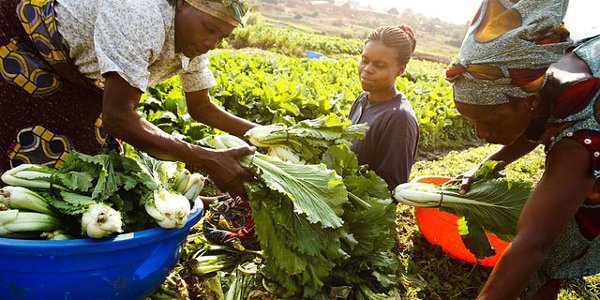Introduction
By: Samuel Shay, President of Gulf Technologies Systems and co-founder of Africa Publicity and Production
Food security remains a critical challenge in Africa, with millions of people facing hunger and malnutrition. Agricultural cooperation programs have emerged as a promising strategy to address this issue, aiming to enhance food production, improve livelihoods, and promote sustainable agricultural practices. This comparative study explores the impact of various agricultural cooperation programs on food security in Africa, examining their effectiveness and identifying key factors that contribute to their success.
Methodology
The study employs a comparative case study approach, selecting four agricultural cooperation programs implemented in different African countries:
1. Agricultural Growth and Food Security Program (AGSFP) in Ethiopia: A large-scale program funded by the World Bank and other donors, focusing on increasing agricultural productivity and household incomes.
2. Brazil-Africa Cooperation on Agricultural Development (BACAD): A South-South cooperation initiative between Brazil and African countries, promoting knowledge sharing and technology transfer in agriculture.
3. Japan-Africa Cooperation on Food Security (JAFS): A partnership between Japan and African countries, emphasizing sustainable agricultural practices and capacity building.
4. China-Africa Agricultural Cooperation (CAAC): A comprehensive cooperation framework between China and African countries, encompassing investments in infrastructure, technology, and trade promotion.
The study examines the impact of each program on food security indicators such as crop yields, food availability, household income, and nutritional status. It also explores factors that influence the effectiveness of these programs, including policy alignment, institutional capacity, and stakeholder engagement.
Findings
The comparative analysis reveals that agricultural cooperation programs can have a positive impact on food security in Africa, but their effectiveness varies depending on the specific program design, implementation context, and underlying factors.
1. AGSFP in Ethiopia: The program has been credited with increasing agricultural productivity, boosting household incomes, and reducing poverty in some regions. However, its impact on overall food security has been uneven, with challenges persisting in areas with poor infrastructure and limited access to markets.
2. BACAD: The knowledge sharing and technology transfer facilitated by BACAD have contributed to improved agricultural practices and increased productivity in participating countries. However, the program’s impact has been limited by challenges in adapting Brazilian technologies to African contexts.
3. JAFS: The emphasis on sustainable agriculture and capacity building in JAFS has led to improvements in soil health, water management, and conservation practices. However, the program’s impact on food security has been gradual, requiring long-term investments in sustainable agriculture.
4. CAAC: China’s investments in infrastructure, technology, and trade promotion have contributed to increased agricultural production and improved market access in some African countries. However, concerns have been raised about the sustainability of these investments and their impact on local food systems.
Key Factors Contributing to Program Success
The comparative study identified several key factors that contribute to the success of agricultural cooperation programs in enhancing food security in Africa:
1. Policy Alignment: Alignment between program objectives and national agricultural policies is crucial for ensuring sustainable impact.
2. Institutional Capacity: Strengthening institutional capacity at the national and local levels is essential for effective program implementation and monitoring.
3. Stakeholder Engagement: Active involvement of farmers, communities, and other stakeholders is critical for tailoring program interventions to local needs and ensuring adoption of new technologies and practices.
4. Context-Specific Adaptation: Programs must be adapted to the specific agro-ecological, socio-economic, and cultural contexts of the regions they operate in.
5. Long-Term Commitment: Agricultural cooperation programs require long-term commitment and sustained funding to achieve lasting impact on food security.
Agricultural cooperation programs can play a significant role in addressing food security challenges in Africa. However, their effectiveness depends on careful program design, implementation strategies, and attention to key factors that influence their success. By fostering policy alignment, strengthening institutional capacity, engaging stakeholders, adapting programs to local contexts, and committing to long-term support, agricultural cooperation programs can contribute to improved food production, increased incomes, and enhanced nutrition for millions of Africans.








